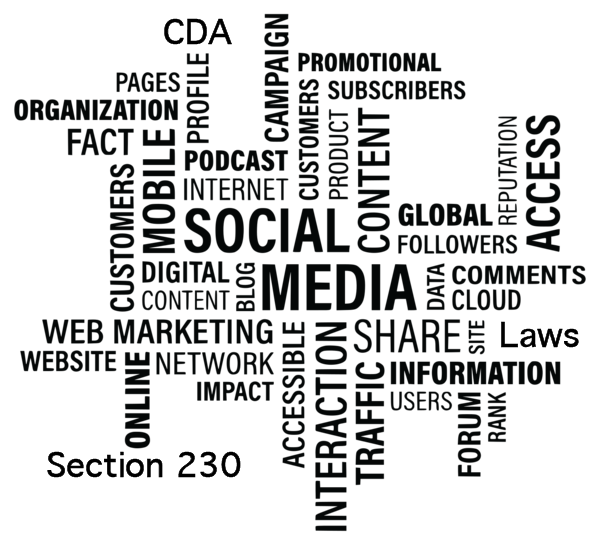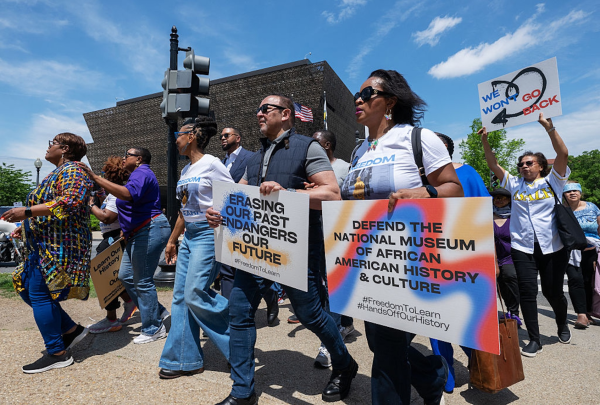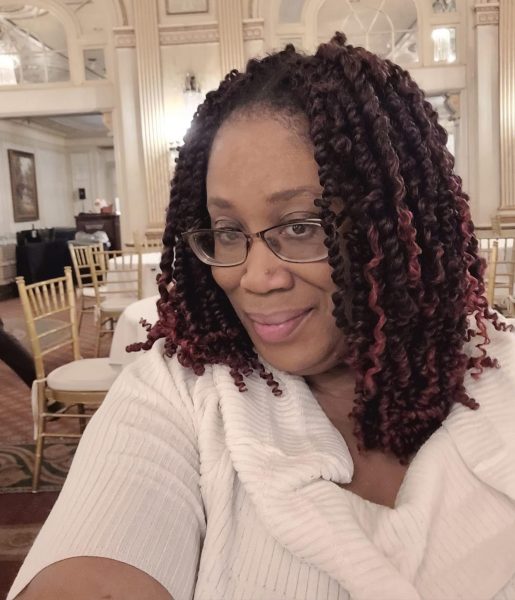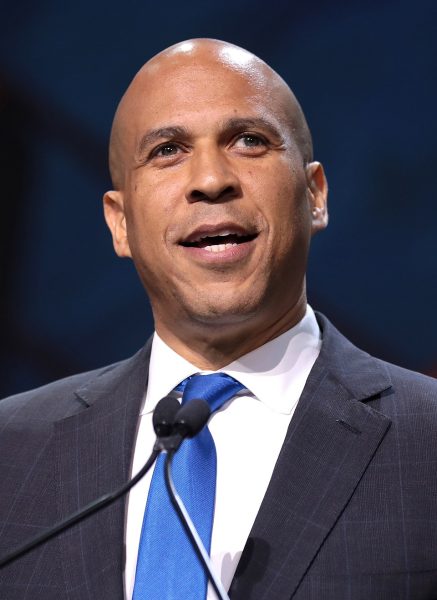Section 230 of the CDA and its possible removal

Could the internet no longer be a public platform?
Laws pertaining to what can legally be said online have now been brought into question.
Section 230 of the Communications Decency Act allows platforms to avoid responsibility when it comes to controversial content posted. Attorney General William Barr has initiated a campaign to weaken – if not repeal – the law completely. Removing this section is a task only large and already powerful companies are able to afford.
Tucked inside the Communications Decency Act (CDA) of 1996 is one of the most valuable tools for protecting freedom of expression and innovation on the Internet: Section 230.
Section 230 says that “No provider or user of an interactive computer service shall be treated as the publisher or speaker of any information provided by another information content provider.” In other words, online platforms that host or republish speech are protected against a range of laws that might otherwise be used to hold them legally responsible for what others say and do.
The protected platforms include not only regular Internet Service Providers (ISPs), but also any online service that publishes third-party content. Though there are important exceptions for certain criminal and intellectual property-based claims, CDA 230 creates a broad protection that has allowed innovation and free speech online to flourish.
For tech companies, the law represents the internet’s founding values of openness and free expression, while also allowing them to remove the most insidious speech without stumbling into a legal minefield.
The First Amendment protects free speech, including hate speech, but Section 230 shields websites from liability for content created by their users. It permits internet companies to moderate their sites without “being on the hook” legally for everything they host. However, it doesn’t provide a blanket of protection from legal responsibility for some criminal acts, like posting child pornography or violations of intellectual property.
Attorney General William Barr aligned himself with the skeptics, telling a gathering of the National Association of Attorneys General in December that the department was “studying Section 230 and its scope.”
“Section 230 has been interpreted quite broadly by the courts,” Barr said, according to a transcript of his remarks. “Today, many are concerned that Section 230 immunity has been extended far beyond what Congress originally intended. Ironically, Section 230 has enabled platforms to absolve themselves completely of responsibility for policing their platforms, while blocking or removing third-party speech — including political speech — selectively, and with impunity.”
Whenever there is discussion of repealing or modifying the section, its defenders, including many technology companies, argue that any alteration could cripple online discussion.
Section 230 has allowed the modern internet to flourish. Sites can moderate content — set their own rules for what is and what is not allowed — without being liable for everything posted by visitors.
But the section’s liability protection also extends to fringe sites known for hosting hate speech, anti-Semitic content and racist tropes like 8chan, the internet message board where the suspect in the El Paso shooting massacre posted his manifesto.
That applies to more than social networks like Facebook, Twitter and Snapchat. Wikipedia and Reddit depend on its visitors to sustain the sites, while Yelp and Amazon count on reviews for businesses and products.
Weakening Section 230 could force these websites to vet every piece of content created by users before it goes online.
This is a task that only large scale companies like Facebook, Google and Amazon would be able to afford.
Given the sheer size of user-generated websites, it would be impossible for online intermediaries to prevent objectionable content from popping up on their site. Rather than face potential liability for their users’ actions, most would likely not host any user content at all or would need to protect themselves by being actively engaged in censoring what we say, what we see, and what we do online. In short, CDA 230 is perhaps the most influential law to protect the kind of innovation that has allowed the Internet to thrive since 1996.
It’s still unclear what specific steps lawmakers may take to change Section 230, but they have often used it as a reminder to tech companies that its protections may not last forever.





